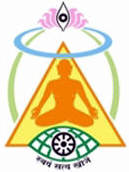
Preksha Meditation is not just for achieving physical, mental, and emotional well-being but a key to spiritual treasure trove. Today, eminent doctors, specialists, and general practitioners have agreed that mediation is a powerful complementary therapy. Meditation can help us in healing and sustenance of good health. It can cure and even protect us from several psychosomatic disorders that result from mental stress and tension.
Preksha Meditation is a technique of meditation that aims at bringing about positive attitudinal and behavioural changes through overall transformation in the personality. Although, the technique of Preksha Meditation is derived from the wisdom of ancient philosophy, it is authentically based on current scientific principles. The main purpose of the Preksha Meditation is to purify the mental state. A human mind is constantly exposed to contaminating urges, emotions, and passions. Therefore, it is essential to remove these obstacles. Peace of mind appears with the disappearance of the impure thoughts. In addition, balanced mind, equanimity, and well-being are also experienced simultaneously. Uncontrolled emotions like anger, greed etc. are not only the hurdles in spiritual progress but also becomes the cause of disaster in social life. We can understand it through an illustration.
Once a gentleman bought a new car. The family felt extremely happy with the possession. In the evening, the son was playing with his friends and unknowingly hit the car with a sharp stone. The father got furious, when he saw the damaged car. In a spate of anger, he hit his son with the iron rod he was holding. The child's hand started bleeding profusely. He became unconscious with unbearable pain. Immediately, he was rushed to the hospital and was operated upon. After a while, he regained consciousness and apologized to his father. He said, 'Sorry Dad, I hit and damaged your new beautiful car. I will never do it again.' Hearing his little son's words, tears rolled down the father's cheeks. He was speechless. Suddenly, the little boy felt that he has no fingers in his hand. He asked his father innocently 'Dad, when will I have my fingers back?' The father went blank. He did not have the courage to face his son.
Can you imagine the agony of an innocent child and the regret of a father who disabled his own son's life for a petty car? How many times all of us fall into similar situations everyday and react under uncontrolled anger and have to regret later? Have you ever understood why it happens? The scientific explanation to the problem can be found in the fact that human beings possess two different parts of the brain. One is known as the animal brain, responsible for our fundamental animal-like instincts and the other called the rational or logical brain that imparts us with much finer humane qualities. However, whenever we are over possessed and controlled by the first brain, we lose control over our logical powers and fall into situations as illustrated above. Under such situations, Preksha Meditation can help us regain, sustain, and establish dominance of the logical brain over the animal brain.
We are showered with excellent mental and spiritual teachings that can also help us transform our lifestyle. But in majority of the cases, these teachings and our thought process dominated by our lifestyle go parallel to each other and never seem to meet each other. As a result, the majority of us fall prey to the circumstances very easily. For instance, a person can make a resolution not to tell a lie, but a difficult situation may change him easily and compel him to behave differently.
This kind of temporary transformation happens because we often fail to register the resolution into the subconscious mind and it remains at the level of our conscious mind only. Unless and until a resolution gets consolidated' into our unconscious mind, we cannot experience the bliss of a permanent transformation. Through the practice of Preksha Meditation, we try to reach our unconscious mind, consolidate our resolution, and experience the permanent transformation of our personality.
 Sadhvi Vishrut Vibha
Sadhvi Vishrut Vibha

